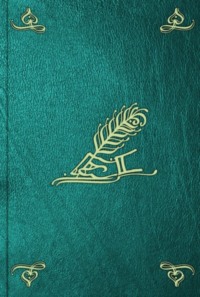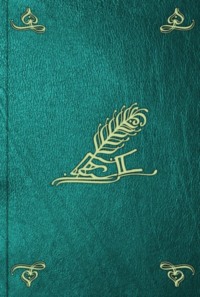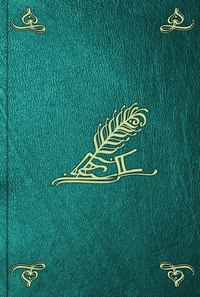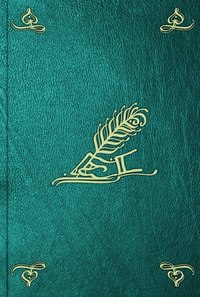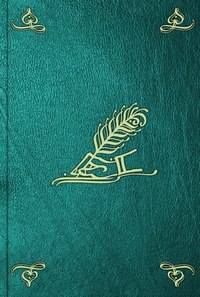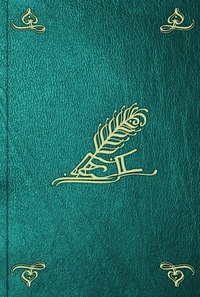 полная версия
полная версияCharles Darwin: His Life Told in an Autobiographical Chapter, and in a Selected Series of His Published Letters
He wrote from Caerdeon to Sir J. D. Hooker (June 22nd): —
"We have been here for ten days, how I wish it was possible for you to pay us a visit here; we have a beautiful house with a terraced garden, and a really magnificent view of Cader, right opposite. Old Cader is a grand fellow, and shows himself off superbly with every changing light. We remain here till the end of July, when the H. Wedgwoods have the house. I have been as yet in a very poor way; it seems as soon as the stimulus of mental work stops, my whole strength gives way. As yet I have hardly crawled half a mile from the house, and then have been fearfully fatigued. It is enough to make one wish oneself quiet in a comfortable tomb."
246
The late Chauncey Wright, in an article published in the North American Review, vol. cxiii. pp. 83, 84. Wright points out that the words omitted are "essential to the point on which he [Mr. Mivart] cites Mr. Darwin's authority." It should be mentioned that the passage from which words are omitted is not given within inverted commas by Mr. Mivart.
247
My father, as an Evolutionist, felt that he required more time than Sir W. Thomson's estimate of the age of the world allows.
248
Chauncey Wright's review was published as a pamphlet in the autumn of 1871.
249
The learned Jesuit on whom Mr. Mivart mainly relies.
250
The same words may be applied to Mr. Mivart's treatment of my father. The following extract from a letter to Mr. Wallace (June 17th, 1874) refers to Mr. Mivart's statement (Lessons from Nature, p. 144) that Mr. Darwin at first studiously disguised his views as to the "bestiality of man": —
"I have only just heard of and procured your two articles in the Academy. I thank you most cordially for your generous defence of me against Mr. Mivart. In the Origin I did not discuss the derivation of any one species; but that I might not be accused of concealing my opinion, I went out of my way, and inserted a sentence which seemed to me (and still so seems) to disclose plainly my belief. This was quoted in my Descent of Man. Therefore it is very unjust … of Mr. Mivart to accuse me of base fraudulent concealment."
251
They were utilised to some extent in the 2nd edition, edited by me, and published in 1890. – F. D.
252
The Minerva Library of famous Books, 1890, edited by G. T. Bettany.
253
The full title is The Formation of Vegetable Mould through the Action of Worms, with Observations on their Habits, 1881.
254
The same number contains a good biographical sketch of my father of which the material was to a large extent supplied by him to the writer, Professor Preyer of Jena. The article contains an excellent list of my father's publications.
255
He once made an attempt to free a patient in a mad-house, who (as he wrongly supposed) was sane. He was in correspondence with the gardener at the asylum, and on one occasion he found a letter from the patient enclosed with one from the gardener. The letter was rational in tone and declared that the writer was sane and wrongfully confined.
My father wrote to the Lunacy Commissioners (without explaining the source of his information) and in due time heard that the man had been visited by the Commissioners, and that he was certainly insane. Some time afterward the patient was discharged, and wrote to thank my father for his interference, adding that he had undoubtedly been insane when he wrote his former letter.
256
Professor of Physiology at Upsala.
257
In 1867 he had received a distinguished honour from Germany, – the order "Pour le Mérite."
258
"Let us recognise Darwin's great service to Natural Science in bringing back to it Teleology; so that instead of Morphology versus Teleology, we shall have Morphology wedded to Teleology." Similar remarks had been previously made by Mr. Huxley. See Critiques and Addresses, p. 305.
259
A replica by the artist hangs alongside of the portraits of Milton and Paley in the hall of Christ's College, Cambridge.
260
He received twenty-six votes out of a possible thirty-nine, five blank papers were sent in, and eight votes were recorded for the other candidates. In 1872 an attempt had been made to elect him in the Section of Zoology, when, however, he only received fifteen out of forty-eight votes, and Lovén was chosen for the vacant place. It appears (Nature, August 1st, 1872) that an eminent member of the Academy wrote to Les Mondes to the following effect: —
"What has closed the doors of the Academy to Mr. Darwin is that the science of those of his books which have made his chief title to fame – the Origin of Species, and still more the Descent of Man, is not science, but a mass of assertions and absolutely gratuitous hypotheses, often evidently fallacious. This kind of publication and these theories are a bad example, which a body that respects itself cannot encourage."
261
Mr. Rich leaves a single near relative, to whom is bequeathed the life-interest in his property.
262
Published in Science and Culture, p. 310.
263
The "Genealogy of Animals" (The Academy, 1869), reprinted in Critiques and Addresses.
264
An English edition is published by the Clarendon Press, 1890.
265
Sachs, Geschichte d. Botanik, p. 419.
266
That is to say, flowers possessing both stamens, or male organs, and pistils or female organs.
267
Christian Conrad Sprengel, born 1750, died 1816.
268
Fertilisation of Flowers (Eng. Trans.) 1883, p. 3.
269
Das entdeckte Geheimniss der Natur im Baue und in der Befruchtung der Blumen. Berlin, 1793.
270
The order to which the pea and bean belong.
271
Gardeners' Chronicle, 1857, p. 725. It appears that this paper was a piece of "over-time" work. He wrote to a friend, "that confounded Leguminous paper was done in the afternoon, and the consequence was I had to go to Moor Park for a week."
272
The sweet pea and everlasting pea belong to the genus Lathyrus.
273
Gardeners' Chronicle, 1858, p. 828.
274
He published a short paper on the manner of fertilisation of this flower, in the Gardeners' Chronicle 1871, p. 1166.
275
The woodpecker was one of his stock examples of adaptation.
276
It is a modification of the upper stigma.
277
This rather obscure statement may be paraphrased thus: —
The machinery is so perfect that the plant can afford to minimise the amount of pollen produced. Where the machinery for pollen distribution is of a cruder sort, for instance where it is carried by the wind, enormous quantities are produced, e. g. in the fir tree.
278
"Darwin considéré, &c.," Archives des Sciences Physiques et Naturelles 3ème période. Tome vii. 481, 1882.
279
May 24th, 1862.
280
June 14th, 1862.
281
My father's "Prefatory Notice" to this work is dated February 6th, 1882, and is therefore almost the last of his writings.
282
See Autobiography, p. 48.
283
The pollen or fertilising element is in each species adapted to produce a certain change in the egg-cell (or female element), just as a key is adapted to a lock. If a key opens a lock for which it was never intended it is an incidental result. In the same way if the pollen of species of A. proves to be capable of fertilising the egg-cell of species B. we may call it incidental.
284
Proc. Amer. Acad. of Arts and Sciences, 1858.
285
This view is rejected by some botanists.
286
In the September number of Silliman's Journal, concluded in the January number, 1866.
287
Charles Darwin, Nature Series, p. 41.
288
Mrs. Haliburton was a daughter of my father's early friend, the late Mr. Owen, of Woodhouse.
289
Mrs. Haliburton had reminded him of his saying as a boy that if Eddowes' newspaper ever alluded to him as "our deserving fellow-townsman," his ambition would be amply gratified.
290
Das Bewegungsvermögen der Pflanzen. Vienna, 1881.
291
The common sun-dew.
292
Kew Gardens Report, 1881, p. 62.
293
See Nature, January 5, 1882.
294
On the action of carbonate of ammonia on roots and leaves.
295
The allusion is to Mr. Huxley's address, "On the hypothesis that animals are automata, and its history," given at the Belfast Meeting of the British Association, 1874, and republished in Science and Culture.



